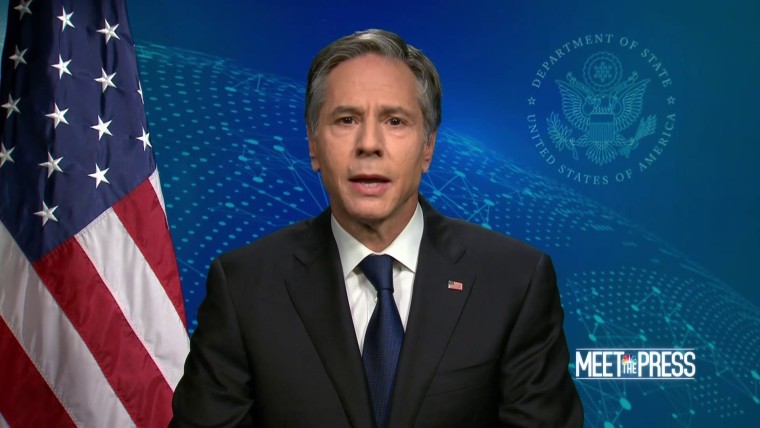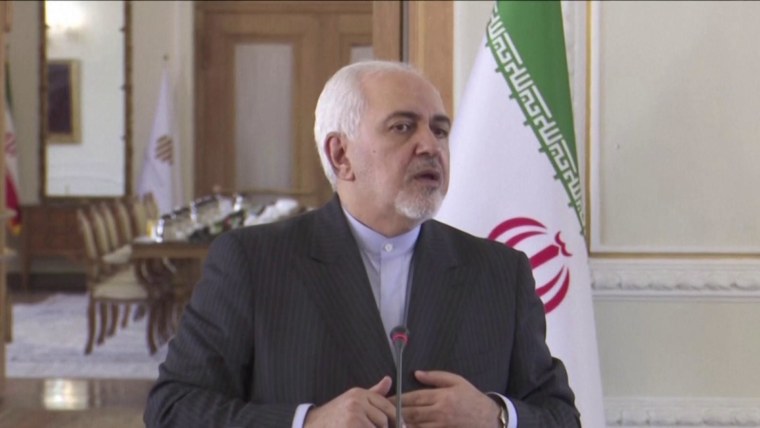WASHINGTON — China is working to challenge the U.S. by doubling its nuclear capacity, besting American capabilities in space and expanding its influence abroad, according to a threat assessment by the U.S. intelligence community published Tuesday that highlights the dangers posed by rogue countries ahead of the non-state terrorism threat that once dominated national security thinking.
The authors of the threat assessment, released ahead of testimony by top intelligence officials before the Senate Intelligence Committee on Wednesday, note that the order in which topics are presented “does not necessarily indicate their relative importance,” but those editorial judgments are not made in a vacuum. For years, the dangers of an al Qaeda attack led the threats assessment, and in more recent years the problem of cyber intrusions was featured first.
Last year, there was no public threats assessment and no open congressional hearing, because intelligence officials worried about offending then-President Donald Trump by presenting judgments that conflicted with his worldview. In 2019, Director of National Intelligence Dan Coats and CIA Director Gina Haspel starkly contradicted Trump on the Islamic State militant group, Iran and North Korea. Coats was soon out of a job. Haspel remained, but her relationship with the president grew more precarious.
This year’s assessment focuses on “great power competition,” as foreign policy wonks like to call it, and specifically the threats posed to American security by four authoritarian adversaries: China, Russia, Iran and North Korea.
“Beijing, Moscow, Tehran, and Pyongyang have demonstrated the capability and intent to advance their interests at the expense of the United States and its allies, despite the pandemic,” the forward of the document says. “China increasingly is a near-peer competitor, challenging the United States in multiple arenas — especially economically, militarily, and technologically — and is pushing to change global norms. Russia is pushing back against Washington where it can globally, employing techniques up to and including the use of force. Iran will remain a regional menace with broader malign influence activities, and North Korea will be a disruptive player on the regional and world stages.”
The effects of the Covid-19 pandemic “will continue to strain governments and societies, fueling humanitarian and economic crises, political unrest, and geopolitical competition as countries, such as China and Russia, seek advantage through such avenues as ‘vaccine diplomacy,'” the assessment says.
The economic and political aftershocks of the pandemic “will be felt for years.”
Climate change, meanwhile, “will continue to fuel disease outbreaks, threaten food and water security, and exacerbate political instability and humanitarian crises,” the assessment says.
Although climate change doesn’t directly affect U.S. security in the short term, it does have immediate consequences, the assessment says, “through more intense storms, flooding, and permafrost melting. This year we will see increasing potential for surges in migration by Central American populations, which are reeling from the economic fallout of the Covid-19 pandemic and extreme weather, including multiple hurricanes in 2020 and several years of recurring droughts and storms.”
Discussions of cyber threats are sprinkled throughout the document, which notes that they “are demonstrably intertwined with threats to our infrastructure and to the foreign malign influence threats against our democracy.”
Russia, the assessment says, will continue to try to undermine U.S. influence, weaken Western alliances and develop military, nuclear, space, cyber and intelligence capabilities.
“Russia presents one of the most serious intelligence threats to the United States, using its intelligence services and influence tools to try to divide Western alliances, preserve its influence in the post-Soviet area, and increase its sway around the world,” the assessment says.
Iran “will present a continuing threat to U.S. and allied interests in the region,” according to the assessment, and “regime leaders probably will be reluctant to engage diplomatically in talks with the United States in the near term without sanctions or humanitarian relief or the United States rejoining” the Iran nuclear deal.
“We continue to assess that Iran is not currently undertaking the key nuclear weapons development activities that we judge would be necessary to produce a nuclear device. … However, If Tehran does not receive sanctions relief, Iranian officials probably will consider options ranging from further enriching uranium up to 60 percent to designing and building a new 40 Megawatt Heavy Water reactor,” the document adds.
On Tuesday, Iran announced that it would enrich uranium at up to 60 percent, in the wake of an apparent explosion at its Natanz nuclear facility that Israel is suspected of orchestrating.
The assessment reiterates the long-standing view that North Korea is unlikely to give up its nuclear weapons.
Intelligence agencies are reluctant ever to say that a threat has significantly diminished, and this document does not say that explicitly about international terrorism. It does so by inference, noting the “diffusion of the terrorist threat globally,” and the fact that ISIS and al Qaeda have suffered significant losses in recent years. There is no mention of either organization being capable of attacking the U.S. homeland, a fear that animated U.S. national security efforts for years.
And there is no mention of terrorists in Afghanistan in a three-paragraph section on that conflict, on a day the Biden administration leaked the news that the president plans to withdraw U.S. troops from that country by September.
Source: | This article originally belongs to Nbcnews.com














